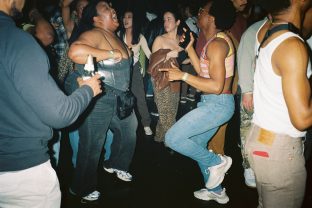UK government rules out making ‘specific offence’ law against spiking
Ministers argued that creating a new law around spiking would be “unnecessary”

The government has ruled out the option of creating a new law around different forms of spiking, despite looking into a new legislation last year, the BBC reports.
Safeguarding minister Sarah Dines deemed a new legislation “unnecessary” while there are other offences in place that cover spiking “by drink, needle, vape, cigarette, food, or any other known form”.
“The existing offences cover all methods of spiking,” she argued. “Police are yet to encounter a case where they could not apply an existing offence.”
Despite the ruling out of a new law, those in favour of the legislation argue that it could improve police data while helping to increase the reports on spiking-related incidents.
Read this next: Police apologise after needle spiking victim waits five months for test results
Last year, ministers committed to looking at the issue further after spiking reports rose toward the end of 2021. In December of the same year, Parliament launched an investigation into the prevalence of spiking, calling for written submissions and survey responses.
In a letter published on Wednesday to the Home Affairs Committee’s chairwoman, Labour MP Diana Johnson, Dines said that the government had “considered” the implementation of a new offence, but deemed it “unnecessary”.
She argued that the government should consult on “potential changes” to statutory guidance to include “explicit reference to spiking being illegal and give examples of such spiking”.
Speaking in response to the inquiry, Night Time Industries Association’s Michael Kill said: “We are extremely disappointed at the outcome of the Government's inquiry.
“While the suggestion is that the police and legislation are equipped to deal with these heinous crimes, the evidence and data gathering preceding October 2021 proved extremely hard to track and assess, with many of these crimes hidden against the crimes of sexual assault or robbery, particularly as the window of evidence gathering and reporting is so short.”
Read this next: Spiking will remain "invisible crime" without action from both police and venues, report finds
In November 2021, an exclusive report by The Independent found that A&E departments generally don’t test patients who believe they have been spiked.
Former Home Secretary Priti Patel said last year that the government was looking into “a specific criminal offence” to target spiking, which the committee said would “send a clear message to perpetrators that this is a serious crime”.
According to the National Police Chiefs Council, nearly 5,000 cases of drink and needle spiking were reported to police in England and Wales between September 2021 and September 2022. Committee chairwoman Diana Johnson argued that, despite this, “reporting is low, and prosecution rates are very rare indeed”.
NTIA’s Michael Kill added: “This is hugely short-sighted by the government and will without a doubt still retain legacy issues in reporting and data gathering as seen pre-October 2021”.
[Via: BBC]
Gemma Ross is Mixmag's Editorial Assistant, follow her on Twitter

Mixmag will use the information you provide to send you the Mixmag newsletter using Mailchimp as our marketing platform. You can change your mind at any time by clicking the unsubscribe link in the footer of any email you receive from us. By clicking sign me up you agree that we may process your information in accordance with our privacy policy. Learn more about Mailchimp's privacy practices here.

 Pedro Pascal celebrates 50th Birthday with party headlined by Honey Dijon
Pedro Pascal celebrates 50th Birthday with party headlined by Honey Dijon


